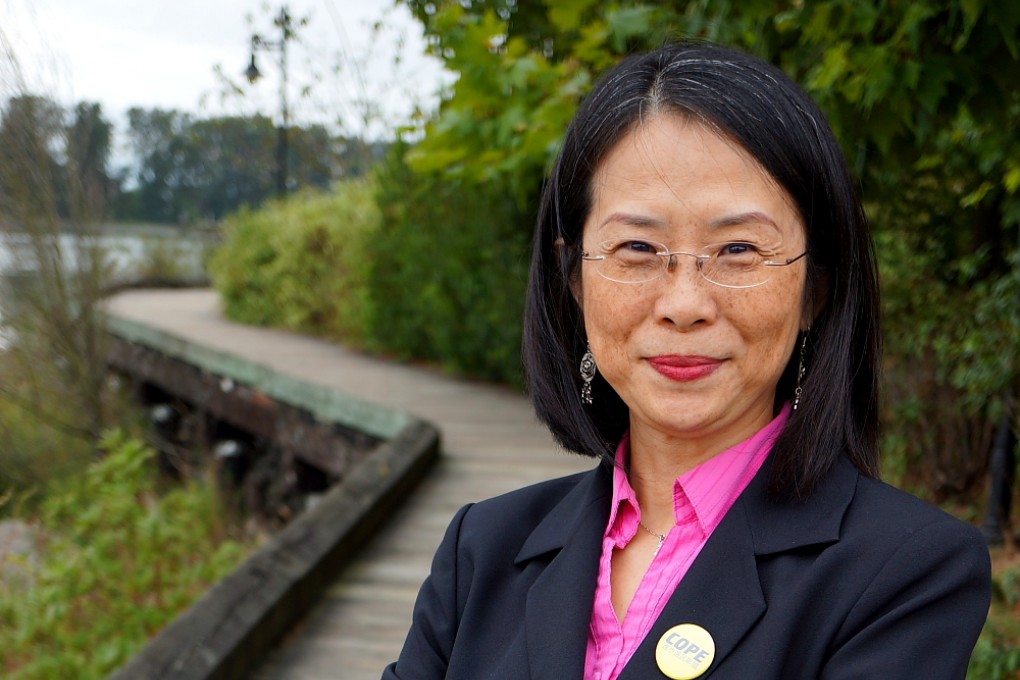Exclusive | Vancouver mayoral candidate Meena Wong proposes tax on vacant homes
Meena Wong says wealthy absentees should pay surcharge in Vancouver

Hong Kong emigrant Meena Wong, who is striving to become Vancouver's first ethnic Chinese mayor, has called for part-time residents to pay for the privilege of leaving their expensive homes vacant in the city.
Vancouver, in west Canada, is the world's most popular destination for wealthy Chinese migrants, who dominate the luxury real estate market in the city, where the average price of a detached home is C$1.2 million (HK$8.46 million).
"As a capitalist free market, I cannot control who can come [to Vancouver], who cannot come," Wong told the South China Morning Post. "But I do say, if you are going to use Vancouver as a resort, then you are going to pay more.
"If you can afford to come and buy a million-dollar home and leave it empty for eight or 10 months, then you can afford to pay more, a surcharge, or a surtax."
If you choose this city to be your vacation home, if you love it so much, then do something to make this city even better
Wong said there were high vacancy rates in parts of Vancouver in spite of a shortage of affordable housing. She said asking part-time residents to pay if they wanted to leave their expensive homes empty was not a "penalty".